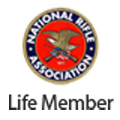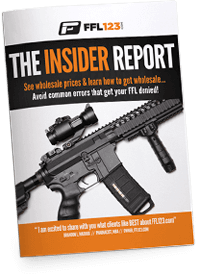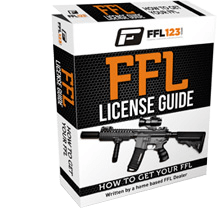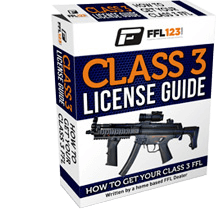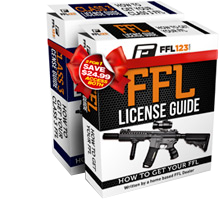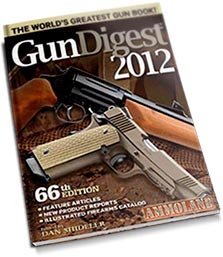Understanding FFL Requirements
A lot of people wonder how do you get a Federal Firearms License (FFL)? Many Americans find it to be a stressful process. So stressful, they never go any further, and let their dreams of running their own gun business fade.
It is understandable that people would be stressed out. After all, dealing with the Federal government is rarely easy, and many of the things asked on an FFL application may seem confusing. It certainly isn’t a direct, straight forward process.
FFL123 was founded with one goal in mind – to strip away the stress, confusion and difficulty of getting your FFL. Our team of industry insiders, legal experts and business leaders spared no expense to tear through the red tape and confusion to design a system that ensures that any qualified person can get the FFL they want!
When is an FFL Needed?
We get asked a lot when is an FFL needed? After all, not all activities involving firearms require an FFL.
Keep in mind FFL means Federal Firearms License. With the exception of the 03 Curio and Relics license, an FFL is needed for commercial transactions involving the sale, manufacture or import of firearms or ammunition. However, even that broad explaination isn’t really accurate. So let’s take a quick look at when an FFL is needed, and when you don’t need to get an FFL.
As we mentioned an FFL is needed for certain commercial activities, but here is a quick look at when an FFL is NOT needed:
- Retail sale of ammunition (state laws may vary). However if you are not engaged in the manufacturing of ammunition, you do not need an FFL to sell it.
- Casual personal sale of guns. If you are selling a gun you no longer want to a private party or swapping guns, as a general rule you don’t need an FFL as long as it involves personal property and private sales. However, if the FFL thinks you are engaged in unlicensed commercial activities, they will come down on you like a ton of bricks.
- Sale of gun parts or accessories. Other than the serialized frame or receiver, there is no requirement to have an FFL to sell or make gun parts and accessories.
- Manufacture of some types of reloading components. An FFL is not needed for making or selling things like bullets or brass cases – basically the non explosive parts of ammunition.
Now that we have an idea of when you don’t need to get an FFL, which is generally retail sales of non regulated gun parts or limited private sales, let’s take a quick look at cases when an FFL is needed.
- Commercial sale of guns. If you are buying and selling guns with an intent to make a profit, an FFL is needed.
- Manufacture of ammunition requires an FFL.
- Manufacture of firearms or the complete frames or receivers of firearms needs an FFL.
- An FFL is needed for the import or export of firearms or ammunition.
So basically an FFL is needed for any sort of profit making activities involving complete firearms, serialized components of guns, or the manufacture of ammunition. When you keep those basic rules in mind, then it is pretty clear when an FFL is needed or an FFL is not needed.
What Are the Requirements to Get an FFL?
The first thing you have to do is make sure you meet the basic requirements to get an FFL. Without meeting them, there is simply no way you can be approved for your FFL.
Before you apply for your FFL make sure you meet the following basic requirements:
- Be at least 21 years old.
- Be a US citizen or legal permanent resident.
- Not be a convicted felon.
- Not be a user of illegal drugs.
- Not be convicted of a crime of domestic violence.
- Not be convicted of any other offense that would disqualify you from owning a gun.
- Not have been adjudicated mentally incompetent.
- Not have violated any Federal gun laws.
- Operate out of a physical location – home or storefront.
- Meet requirements for operating an FFL out of your proposed location.
Really basic stuff. In fact, it could be summed up as “Be a legal US gun owner at least 21 years old, who can satisfy the ATF as to the requirements for operating an FFL business out of their proposed location.” That last part is what trips up a lot of people though, because it’s subjective and varies on location and type of FFL.
And that’s where FFL123 is ready to step in and help you. If you need help filling out the application, we’ll start by showing you that process. Because let’s face it, Federal forms are confusing.
Every FFL has to meet certain requirements for their business location. You won’t be required to buy a safe or anything like that, but you’ll have to satisfy local zoning requirements for your type of business, and some FFL’s actually handle explosive materials, so there may be other conditions to meet.
Because each FFL application is case by case, we’ll work with you to make sure the location requirements are satisfied before sending off your application, and show you what your examiner will be wanting to see for your license type and location.
What Else Do I Need To Do To Get my FFL?
There are a lot of internet myths and rumors about what you’ll have to do in order to get or keep your FFL. Fortunately, they are false! To get or keep an FFL you don’t need to worry about any of the following:
- There are no requirements to transfer a certain number of guns each year. As long as you are engaged in active business you can transfer as few or as many guns as you can or feel comfortable with.
- You do not have to put your personally owned firearms into your inventory. If you store your guns with inventory, you just have to tag yours as not for sale.
- You can sell a personally owned firearm through your business as long as you transfer it into inventory like any other gun you sell.
- You are not required to get an alarm system, safe or anything like that. Some states may have other requirements, but we can help you with that too.
- You CAN buy guns for your own personal collection with your FFL. Just don’t have that be the primary reason you have the FFL.
What Do I Have To Do Once I Get My FFL?
Once you’ve gotten your FFL, there really isn’t much else you have to do. Naturally, you have to be in active business and we can help you understand exactly what that means. As long as you can show that you aren’t keeping an FFL mostly for your personal benefit, you can run your business as you see fit.
You’ll need to get a Bound Book to satisfy ATF record keeping requirements, and we’ll teach you about that too. Keeping accurate records is important, and one of the things that causes the most problems for unsuspecting FFL holders. The ATF is very specific about how records are made and kept, and some ATF agents can be overly strict for the smallest details or errors in your records. Fortunately, FFL123 is prepared to show you how to prevent these sorts of problems, and we’ll teach you record keeping best practices too.
Are You Ready?
If you are ready to start the journey to getting your FFL, then head over to our FFL Guides page and choose the guide that most suits your needs or interests. Still unsure what guide is best for you? Use the form at the bottom the page to ask our founder and owner Brandon Maddox what will work best for you.
Thousands of Americans from all walks of life have used our guides to start their own successful FFL business. From small home based dealers, to manufacturing ammo, or even NFA devices like silencers and machine guns, we have helped people get the FFL they need. Your FFL is the start to achieving the great American dream of self sufficient business ownership, and keeping our 2nd Amendment rights alive and thriving.
There is always a market for guns, and FFL123 is here to ensure you can participate in that market!





